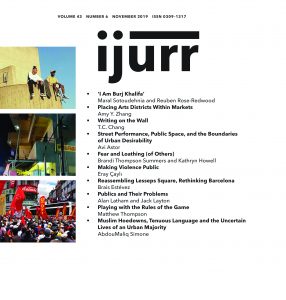Innovation is perhaps the buzzword in local economic development policy. Associated narrowly with neoliberal ideas, conventional notions of innovation—like its capitalocentric counterparts, enterprise and entrepreneurialism—may promise higher productivity, global competitiveness and technological progress but do not fundamentally change the ‘rules of the game’. In contrast, an emerging field reimagines social innovation as disruptive change in social relations and institutional configurations. This article explores the conceptual and political differences within this pre‐paradigmatic field, and argues for a more transformative understanding of social innovation. Building on the work of David Graeber, I mobilize the novel constructs of ‘play’ and ‘games’ to advance our understanding of the contradictory process of institutionalizing social innovation for urban transformation. This is illustrated through a case study of Liverpool, where diverse approaches to innovation are employed in attempts to resolve longstanding socio‐economic problems. Dominant market‐ and state‐led economic development policies—likened to a ‘regeneration game’—are contrasted with more experimental, creative, democratic and potentially more effective forms of social innovation, seeking urban change through playing with the rules of the game. I conclude by considering how the play–game dialectic illuminates and reframes the way transformative social innovation might be cultivated by urban policy, the contradictions this entails, and possible ways forward.

